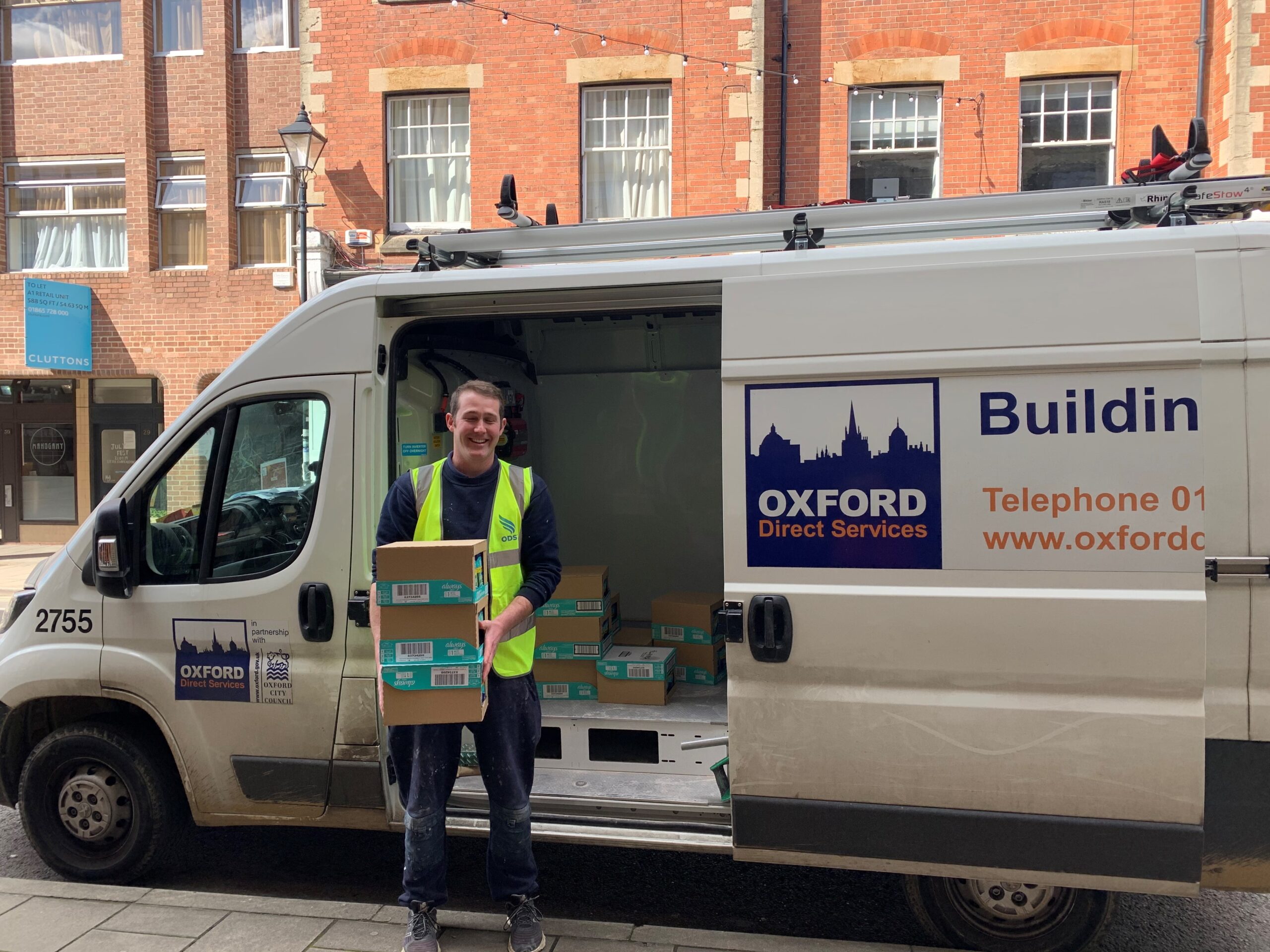How Oxford is a great example of corona community coordination to help householders
As we enter week two of the lockdown ODS (Oxford Direct Services) and Oxford City Council have settled into a new way of working and thank the public for its help in adapting so rapidly and supporting our key workers.
ODS is the largest employer of skilled trade workers in Oxford and unusually many of its staff are either still working outside or have switched to new volunteer roles.
In a letter sent to staff last Friday, MD Simon Howick wrote “We are currently in business-critical mode. Broadly, that is waste, emergency repairs, cemeteries, rapid response on highways and streets, estates services, jetting, fleet, and various support services around these carry on. I am proud of you and of the collective effort we are all putting in at ODS. It would be unthinkable if these services stopped.”

The focus of ODS’ normal programme of building works, maintaining over 7,000 homes and building new ones for the City Council, has switched focus rapidly.
While emergency home repairs such essential work on gas, electricity or water are taking place, all other construction activity has now stopped. What work now goes on is specifically to safeguard either the NHS or the community.
Ian Batchelor, Director of Construction for ODS is also coordinating the use of ODS vehicles and staff for the Oxford Hub community service.
“We’ve got carpenters, joiners, plumbers, electricians and a host of people who can’t do their normal job for us, delivering a service for the Oxford Hub. The city is divided into five hubs and we’ve given a team of four people and four vehicles to each hub, working with members of the public to deliver food and medical supplies across the city.
“Everyone is a volunteer – they could just stay at home if they want – but people want to do good and make a difference, and I can’t thank them enough for their help.”
However, many ODS staff are still carrying out essential services on behalf of the City Council. Fifteen disabled adaptations are currently underway across the city, while sixty staff are working on emergency repairs. Disabled adaptations allow people to return to their homes and free up hospital beds.
There are also thirty voids which are being completed as a matter of urgency.
Ian explains the importance of ‘void’ housing work at the moment:
“Voids are where we prepare a property to make a new home for someone when it becomes vacant. For example, cleaning the house and garden, making any repairs, testing the gas, electricity and water. We are prioritising work on homes that we can make good as quickly as possible; a fire damaged home for example takes much longer to work on. We’re working as fast as we can; taking someone off the streets has an even greater urgency now.”
Work on Floyd’s Row is also continuing with renewed urgency. Phase One was handed over in January and Phase Two will create up to forty new beds for homeless people.
All ODS’ staff have had health and safety training and are following government advice about social distancing with, for example, one person working upstairs and another downstairs where possible.
Other operatives such as waste collectors or those cleaning streets have to continue working outside. MD Simon Howick said:
“When you see us out and about carrying out these essential and critical services, emptying your bins, keeping your properties maintained and streets clean, clear and safe, please help us to work safely and keep both our families and yours safe by respecting the social distancing requirements.”
